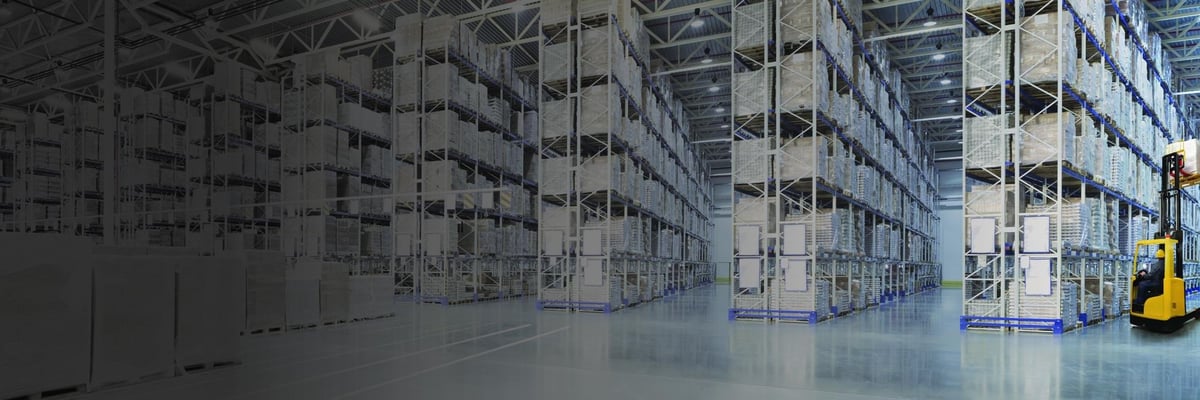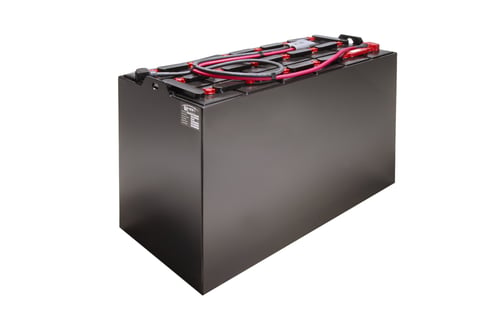
Debunking Forklift Batteries Myths
Forklifts are essential in various industries, from warehouses to construction sites. One critical component that keeps these machines running smoothly is the forklift battery. However, there are numerous myths and misconceptions surrounding forklift batteries that can lead to improper usage and maintenance. In this article, we'll dive deep into the world of forklift batteries, debunking common myths and providing you with the necessary knowledge to make informed decisions.

Understanding Forklift Batteries
Forklift batteries are not just simple power sources; they play a crucial role in the efficiency and longevity of your material handling equipment. Most forklifts operate on either lead-acid or lithium-ion batteries. Understanding how these batteries work and their specific requirements is vital for any operator or business owner.
The Basics of Forklift Batteries
At the core, forklift batteries store energy that powers electric forklifts. Lead-acid batteries have been the industry standard for decades due to their reliability and cost-effectiveness. On the other hand, lithium-ion batteries are rapidly gaining traction due to their lighter weight, longer lifespan, and faster charging times.
Key Features of Forklift Batteries:
- Voltage: Most electric forklifts use 24V, 36V, or 48V systems.
- Capacity: Measured in amp-hours (Ah), capacity determines how long a forklift can run before needing a recharge.
- Charging Time: Standard lead-acid batteries require several hours to charge fully, while lithium-ion options can often be charged in under an hour.
Common Misconceptions About Forklift Batteries
A lack of clear understanding often leads to misinformed beliefs about forklift batteries. Let's explore some prevalent myths:
- Reality: This couldn't be further from the truth! Different forklifts require specific types of batteries tailored to their design and operational needs.
- Reality: While lithium-ion has advantages like faster charging and reduced maintenance, they may not always be the best fit for every application. Cost considerations also come into play since lithium-ion batteries tend to have a higher upfront price.
- Reality: Overcharging is indeed possible but can damage the battery over time. It's crucial to follow manufacturer guidelines regarding charging practices.
- Reality: Even maintenance-free options require periodic checks for performance optimization.
- Reality: The age of a battery significantly affects its performance. Older batteries may still function but could lead to inefficiencies in operation.
- Reality: Electric forklifts can deliver comparable power levels as gasoline models when equipped with appropriate battery configurations.
Debunking Forklift Batteries Myths
Let's take a closer look at some of these myths regarding forklift batteries and clarify them once and for all.
Forklift Battery Maintenance Is Optional
One common myth suggests that regular maintenance is an optional aspect of operating electric forklifts; however, this belief can lead to significant long-term issues.
The Importance of Regular Maintenance:
- Performance Optimization: Regular check-ups ensure that all components function correctly.
- Extending Battery Life: Simple tasks like checking water levels in lead-acid batteries can prolong their lifespan.
- Safety Concerns: Faulty connections or worn-out cables pose risks not only to equipment but also to human operators.
To maintain your 72 volt flat plate forklift batteries forklift's battery effectively:
All Electric Forklifts Require The Same Charging Practices
Another widespread myth is that "one-size-fits-all" applies when it comes to charging electric forklifts; however, each type of battery has unique charging requirements:
Charging Practices by Battery Type:
| Battery Type | Charging Voltage | Recommended Charge Time | |---------------------|------------------|-------------------------| | Lead-Acid | 2-3 volts per cell | 8 hours overnight | | Lithium-Ion | Manufacturer’s recommendation | 1 hour quick charge |
Improper charging methods can result in reduced battery life or even catastrophic failure! Therefore, it's essential always to consult manufacturer guidelines regarding optimal charging practices tailored specifically for your forklift model.
Debunking Myths Around Lifespan Expectations
Many operators believe that if a forklift battery is still functioning efficiently after five years or more, it’s in good condition—a dangerous assumption!
How Long Do Forklift Batteries Last?
Typically:
- Lead-Acid Batteries: 4-6 years depending on use conditions
- Lithium-Ion Batteries: Upwards of 10 years with proper care
Factors Influencing Lifespan Include:
- Depth of discharge
- Frequency of charges
- Operating environment (temperature extremes affect performance)
Warning Signs That A Battery May Be Failing:
It’s crucial always not only to rely on performance alone but also understand these other indicators indicating potential replacement needs!
FAQs About Forklift Batteries
Here are some frequently asked questions about forklift batteries along with concise answers:
- The choice between lead-acid and lithium-ion depends on your specific operational needs such as runtime required, budget constraints, and how often you plan on using the equipment daily.
- Ideally after each shift; however, ensure you're following specific guidelines provided by manufacturers as different models may have varying requirements based on usage patterns!
- Yes! Leaving it plugged in overnight is standard practice for most operations—but be cautious about overcharging which could wear down your battery prematurely over time!
- Neglecting maintenance can lead to decreased performance efficiency resulting from sulfation buildup (in lead acid) or thermal runaway scenarios (in Li-ion), both damaging possibilities!
- While DIY replacements aren’t out-of-the-question if you're knowledgeable about safety protocols—it's often best left up-to professionals due diligence ensures proper handling throughout installation processes!
- Disposal must comply with local regulations regarding hazardous waste management; many suppliers offer recycling programs aimed specifically at used industrial batteries so reaching out could help simplify this process greatly!
Conclusion
In conclusion, understanding how forklift batteries work—and dispelling myths surrounding them—is vital for enhancing operational efficiency in any setting where heavy machinery is employed regularly! Remember that maintaining your equipment properly leads 12 volt flat plate forklift batteries directly towards maximizing productivity while minimizing downtime costs associated with malfunctions caused by neglectful practices over time!
So next time someone brings up those pesky misconceptions about “forklift batteries,” you’ll be ready armed with facts rather than fiction—ensuring optimal safety measures keep both employees & machinery running smoothly day-in & day-out!